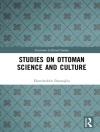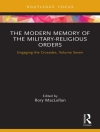Thomas D. Rogers’s history of a modernizing Brazil tracks what happened when a key government program, created in the 1970s by the nation’s military regime, aspired to harness energy produced by sugarcane agriculture to power the country’s economy. The National Alcohol Program, known as Proalcool, was a deliberate economic strategy designed to incentivize ethanol production and reduce gasoline consumption. As Brazil’s capacity grew and as international oil shocks continued, the regime’s planners doubled down on Proalcool. Drawing financing from international lenders and curiosity from other oil-dependent countries, for a time it was the world’s largest oil-substitution and renewable-energy program.Chronicling how Proalcool experimented with and exemplified the consolidation of government, agribusiness, large planters, agricultural and chemical research companies, and oil producers, this book expands into a rich investigation of the arc of Brazil’s Green Revolution. The ethanol boom epitomized the vector of that arc, but Rogers keeps wider development imperatives in view. He dramatizes the choices and trade-offs that ultimately resulted in a losing energy strategy, for Proalcool ended up creating a large contingent of impoverished workers, serious environmental degradation, and persistent hunger. The full consequences of the Green Revolutionfueled consolidation continue to take a toll today.
Thomas D. Rogers
Agriculture’s Energy [PDF ebook]
The Trouble with Ethanol in Brazil’s Green Revolution
Agriculture’s Energy [PDF ebook]
The Trouble with Ethanol in Brazil’s Green Revolution
Cumpărați această carte electronică și primiți încă 1 GRATUIT!
Limba Engleză ● Format PDF ● Pagini 306 ● ISBN 9798890863492 ● Editura The University of North Carolina Press ● Publicat 2022 ● Descărcabil 3 ori ● Valută EUR ● ID 9201143 ● Protecție împotriva copiilor Adobe DRM
Necesită un cititor de ebook capabil de DRM












